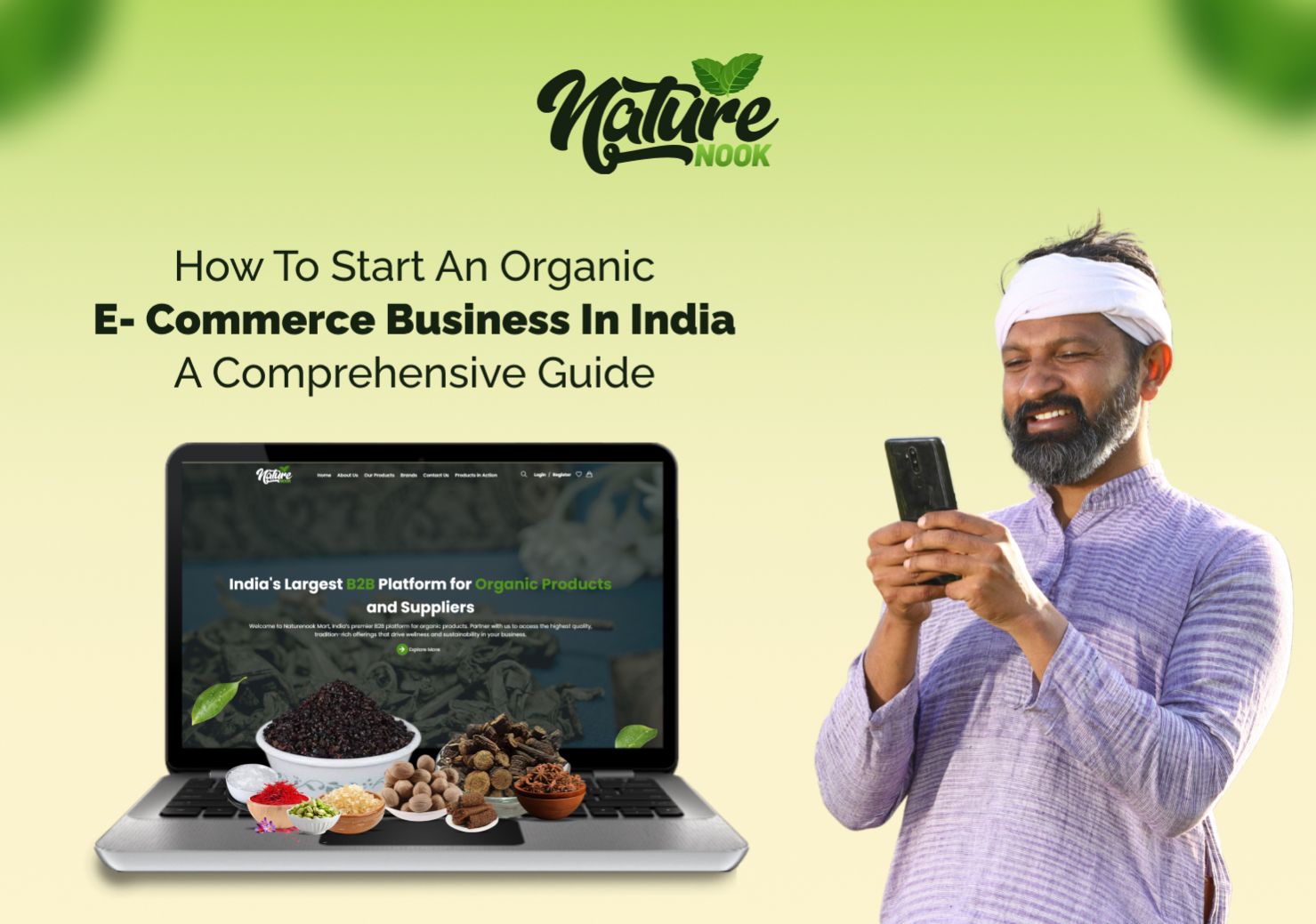
How to Start an Organic Ecommerce Business in India: A Comprehensive Guide
Introduction
The Indian market is witnessing a surge in demand for organic products. With increasing health consciousness and environmental concerns, consumers are seeking natural and sustainable alternatives. Starting an organic ecommerce business in India can be a lucrative venture, but it requires careful planning and execution.
Understanding the Organic Market in India
Before diving into the specifics, it's essential to understand the Indian organic market.
Growing Demand: The Indian organic market is booming, driven by rising disposable incomes and changing consumer preferences.
Government Initiatives: The government's support for organic farming and certification has further boosted the sector.
Challenges: Despite the growth, challenges like lack of awareness, supply chain issues, and stringent regulations persist.
Step-by-Step Guide to Starting Your Organic Ecommerce Business
1. Market Research and Business Plan
Identify Your Niche: Determine the specific organic products you want to sell, such as food items, personal care products, or home goods.
Market Analysis: Conduct thorough market research to identify target customers, competitors, and industry trends.
Business Plan: Create a comprehensive business plan outlining your business goals, target market, marketing strategy, financial projections, and operational plan.
2. Source Reliable Suppliers
Organic Certification: Ensure your suppliers are certified organic by reputable organizations like APEDA or NPOP.
Quality Assurance: Prioritize quality and safety by conducting rigorous quality checks on all products.
Build Strong Relationships: Establish long-term relationships with suppliers to ensure a steady supply of high-quality products.
3. Choose the Right Ecommerce Platform
User-Friendly Platforms: Opt for platforms like Shopify, WooCommerce, or Magento that are easy to use and offer customization options.
Secure Payment Gateways: Integrate secure payment gateways to facilitate smooth transactions.
Mobile Optimization: Ensure your website is mobile-friendly to cater to the growing number of mobile shoppers.
4. Build a Strong Brand Identity
Brand Name and Logo: Choose a memorable brand name and design a visually appealing logo.
Brand Story: Develop a compelling brand story that resonates with your target audience.
Consistent Branding: Maintain consistency in your branding across all marketing materials and customer interactions.
5. Effective Marketing and Promotion
Social Media Marketing: Leverage platforms like Instagram, Facebook, and Pinterest to engage with your audience.
Content Marketing: Create high-quality content, such as blog posts and videos, to educate and inform your customers.
Search Engine Optimization (SEO): Optimize your website for relevant keywords to improve organic search visibility.
Email Marketing: Build an email list and send regular newsletters to nurture customer relationships.
Influencer Partnerships: Collaborate with influencers in the health and wellness niche to reach a wider audience.
6. Logistics and Shipping
Reliable Shipping Partners: Partner with reliable shipping companies to ensure timely delivery.
Packaging: Use eco-friendly packaging materials to minimize environmental impact.
Efficient Order Fulfillment: Implement efficient order processing and fulfillment systems.
7. Customer Service and Support
Responsive Customer Support: Provide excellent customer support through various channels, such as email, phone, and live chat.
Address Customer Queries: Promptly address customer queries and concerns.
Build Customer Loyalty: Implement loyalty programs and offer special discounts to retain customers.
Conclusion
Starting an organic ecommerce business in India can be a rewarding venture. By following these steps, you can establish a successful online business that caters to the growing demand for organic products. Remember, building a strong brand, focusing on customer satisfaction, and adapting to market trends are key to long-term success.


